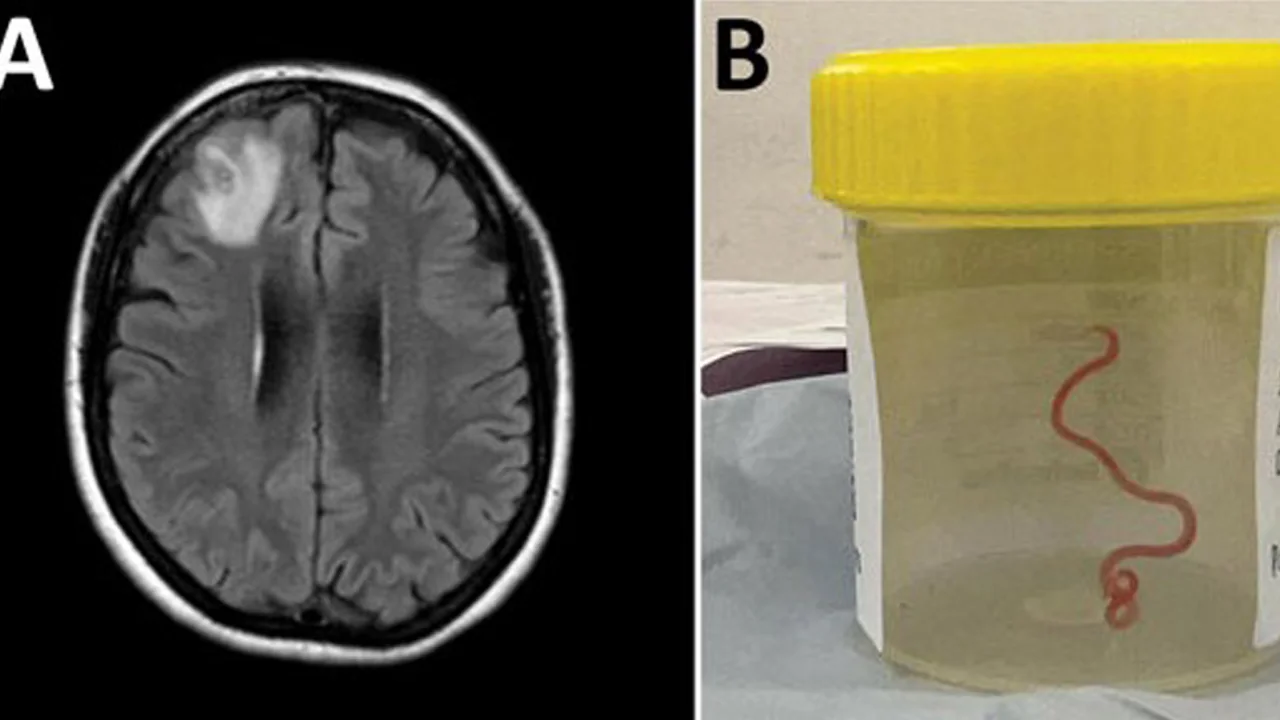When a 64-year-old Australian woman was sent to a hospital for brain surgery, neurosurgeon Dr Hari Priya Bandi was not expecting to pull out a live 8-centimeter (3-inch) long parasitic roundworm that wriggled between her forceps.
“I’ve only come across worms using my not-so-good gardening skills … I find them terrifying and this is not something I deal with at all,” Bandi told CNN of the world’s first discovery of a live worm inside a human brain.
The finding unleashed a serious scramble to find out what exactly the parasite was, Canberra Hospital infectious disease expert, Sanjaya Senanayake told CNN.
One colleague in the hospital lab was able to reach an animal parasitology expert at a governmental scientific research agency just 20 minutes away – and found their unexpected answer.
NAICOM ‘ll publish names of insurance companies who fail to pay outstanding claims – Thomas
Kano Govt to residents: Stop complaining over water supply on social media
“We were able to send the live wiggling worm to him, and he was able to look at it and immediately identify it,” Senanayake said.
Molecular tests confirmed it was Ophidascaris Robertsi, a roundworm usually found in pythons, according to a press release from the Australian National University and the Canberra Hospital.
“To our knowledge, this is also the first case to involve the brain of any mammalian species, human or otherwise,” said Senanayake, who is also a professor at the Australian National University.
Researchers say the patient lived near a lake area inhabited by carpet pythons in southeastern New South Wales. Although she did not have direct contact with the reptiles, it is likely she caught the roundworm after foraging Warrigal greens, a native leafy vegetable, which she cooked and ate.
The doctors and scientists involved in her case theorized that a carpet python might have spread the parasite via its faeces into the greens, which the patient then touched and cross-contaminated with food or other cooking utensils.
The woman was initially admitted to a local hospital in late January 2021 after suffering three weeks of abdominal pain and diarrhoea, followed by a constant dry cough, fever and night sweats.
Several months later, her symptoms developed into forgetfulness and depression and she was sent to a hospital in the Australian capital, where an MRI scan revealed something unusual in the right frontal lobe of her brain.
What normally happens is that carpet pythons in Australia carry the Ophidascaris robertsi and shed parasite eggs in their faeces, spreading through vegetation that small mammals and marsupials eat. At some point, pythons also eat those same infected animals, and the parasite then lives inside the snake, completing the cycle.
In this case, the patient was likely an accidental host of the worm, Senanayake said. The parasite is highly invasive and it is suspected that its larvae, or juveniles, were present in other organs in the woman’s body, including the lungs and liver.

 Join Daily Trust WhatsApp Community For Quick Access To News and Happenings Around You.
Join Daily Trust WhatsApp Community For Quick Access To News and Happenings Around You.